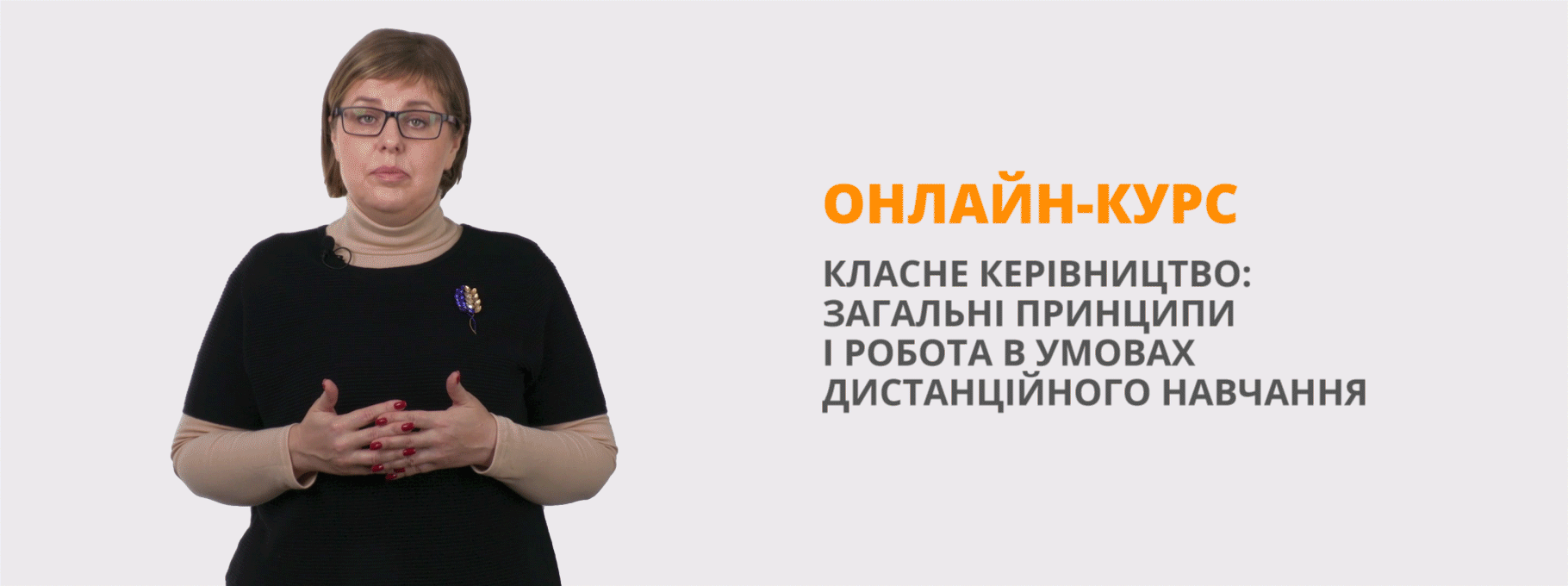Урок „Правила поведінки під час стихійних лих”
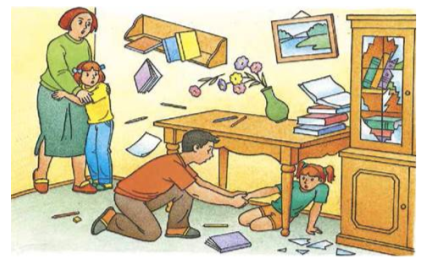
![]()
![]()
Theme: «Natural disasters. Survival techniques»
Aims:
- to revise lexics for describing disasters;
- to develop students’ main language skills;
- to help students talk about disasters and survival techniques;
- to help students develop ability to search, collect and process information;
- to develop students’ ability to work cooperatively and flexibly in pairs (groups).
Learning outcomes:
By the end of the lesson students should be able:
- to recognize issues relating to natural disasters;
- to define a disaster and list a set of safety rules;
To explain the rules of survival techniques.
Equipment: course book O.Karpiuk «English», 10 (2018), interactive whiteboard, multimedia projector, HOs.
Procedure
I. Introduction. Warm up.
T.: As you guessed the theme of our lesson is “Natural disasters. Survival techniques”. Today we are going to speak about different kinds of natural disasters. Clear up how these natural disasters affect people and what we should do to live with them and to protect ourselves from different natural catastrophes.
«Mother planet is showing us the red warning light – be careful – she is saying».
Dalai Lama
II. Main part.
1. Home task review.
2. Vocabulary review. Pictionary
A volunteer is asked to come out to the board and is shown one of the word cards with disasters. He must draw the word on the board and other students must guess what it is.
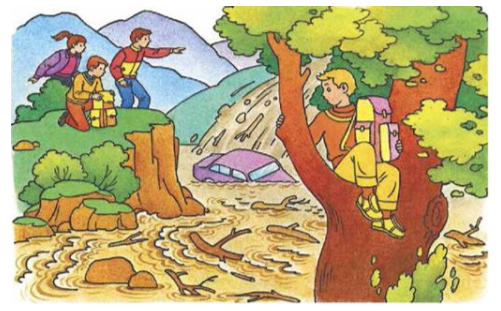
3. Speaking. Disasters discussion.
1) Are you prepared for a disaster?
2) Do you know someone who has been in a disaster?
3) What would you do if an earthquake struck right now?
4) What happens during an earthquake? How long does an earthquake usually last?
5) What happens during a tsunami?
6) What happens during a flood?
7) What are some problems people have right after a natural disaster?
4. Grammar minute.
Modal verb should / shouldn’t ( brief review )
We use should and shouldn't to give advice or to talk about what we think is right or wrong. You should means something like I think it is a good idea for you to do it. You shouldn't means something like I think it is a bad idea for you to do it.
For example,: You shouldn't wash white clothes with brightly colored clothes.
You look tired. I think you should take a few days off.
5. Reading.
Pre-reading task.
- What could happen to a city when there is an earthquake?
- What could happen to our school if there is an earthquake?
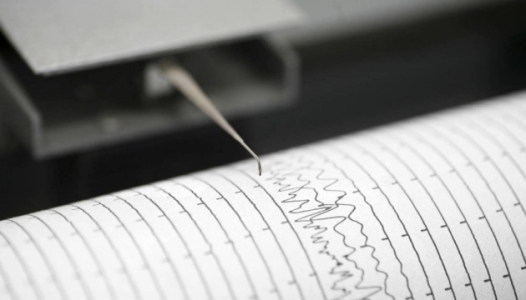
1. As soon as the earthquake starts, students should get under the desks and wait until the teacher tells them it is safe to come out. The teacher should at the same time go to the teacher's desk, get under it and stay there till the danger is over.
As soon as the vibration stops, all students should go to the exit and go to the school playground or any open space such as a square or park. They must wait there until the teacher tells them it is safe to go. Whatever you don't panic: most accidents occur not as a result of the earthquake itself but from people panicking.
2. If you are at home when the earthquake occurs, get under the table in the living room or kitchen. Choose the biggest and strongest table you can find. You must not go anywhere near the windows and don't go out onto the balcony. Once the shaking have stopped, you can come out from under the table but you must leave the building straight away. You should walk down the stairs and should not use the lift - there may be a power cut as a result of the earthquake and you could find yourself trapped inside the lift for hours.
3. If you are in the street when the earthquake takes place, do not stand near buildings, fences or walls - move away as quickly as possible and try to find a large open space to wait in. Standing under trees could also be dangerous.
After-reading task.
a) Answer the questions:
- What should you do when the earthquake occurs and you are at school?
- How long should you stay under the desks?
- What should school students do as soon as the vibration stops?
b) Do the ex.4, p. 149-150 – True / False statements (course book O.Karpiuk «English», 10 ( 2018 )).
c) Watching and discussing video about safety rules during earthquake ( when you are at home).
https://youtu.be/AmFHOgP35vo
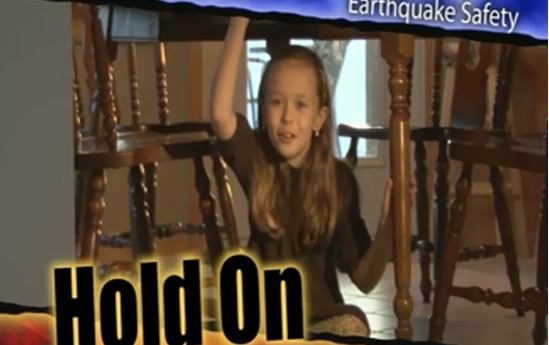
6. Listening. Disaster dictation.
T.: «Draw three houses on the right in the middle. Each house has four windows and a door. On the roof of one of the houses there are two people and a dog. Draw two trees on the left in the middle. At the top of the picture draw some clouds. The clouds look grey and it’s raining a lot. In the sky there is a helicopter. Around the houses there is water. The water touches the top windows of the house....».
Now look at your pictures. What do you think has happened in the scene? ( Answers may vary from flood, hurricane, tsunami… ).
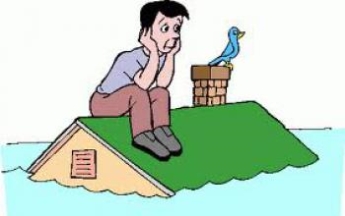
7. Matching.
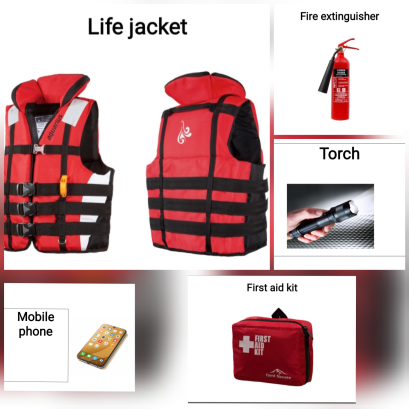
Match the rescue items with the reasons to use them. Then ask and answer as in the example.
|
1 |
Whistle |
a) |
prevent yourself from drowning |
|
2 |
Life jacket |
b) |
find your way |
|
3 |
Fire extinguisher |
c) |
attract attention |
|
4 |
Torch |
d) |
call for help |
|
5 |
Mobile phone |
e) |
provide first aid |
|
6 |
First aid kit |
f) |
put out a fire |
Keys: 1c, 2a, 3f, 4b, 5d, 6e
Example: A: What do you need in case of an earthquake?
B: I need a whistle to attract attention.
III. Home assignment. Summing up.
T.: Our lesson is almost over. Your home assignment is to write some instructions of behavior during certain natural disaster. Such disasters as earthquake, flood, fire…
Speaking blank
- You should always …
- People shouldn’t …
- You should never…
- It would be a good idea to …
- The most important thing is …
- Always remember to …
Now, let’s sum up. What was new to you? What useful information did you get fro m this lesson? What was difficult? What did you like most of all?
I’m satisfied with your work today. I hope that knowledge received at the lesson will help you in the future. All of you were perfect so everyone got positive marks. Thank you for the work.


про публікацію авторської розробки
Додати розробку
